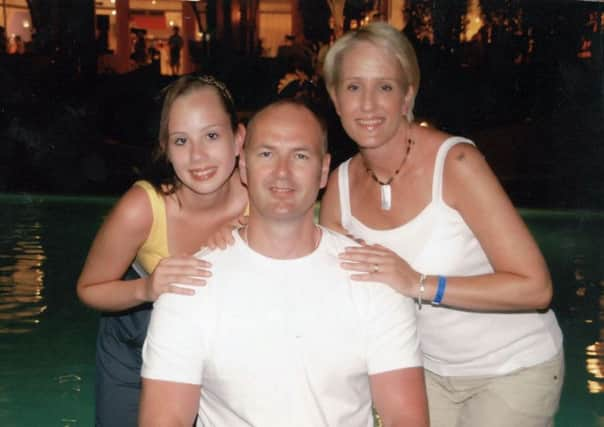Flood of reviews predicted after '˜joint enterprise' murder ruling


But solicitors say it is impossible to know how many cases might reach the Court of Appeal or how many convictions might be overturned.
The mother of a young Belfast victim of a notorious murder has said she does not expect it to affect her case, however (see below).
Advertisement
Hide AdAdvertisement
Hide AdA panel of Supreme Court justices said yesterday that prosecutors, judges and jurors had to take a different approach when dealing with defendants accused of being involved in some kinds of joint criminal enterprises.
Justices said the interpretation of part of the law relating to joint enterprise – which can result in people being convicted of assault or murder even if they did not strike the blow – had taken a “new turn” in the mid-1980s.
Senior judges had decided in 1984 that a “secondary party” would be guilty of murder if he or she “foresaw” the possibility that the “principal” might act with intent to cause death or serious harm. The Supreme Court said that development was wrong.
Justices said it was not right that someone should be guilty merely because they foresaw that a co-accused might commit a crime.
Advertisement
Hide AdAdvertisement
Hide AdThey said jurors should view “foresight” only as evidence to be taken into account, not as proof.
Five Supreme Court justices had analysed the issue at a hearing in London when considering an appeal by a man who was convicted of murder after egging on a friend to stab a solicitor.
Ameen Jogee and Mohammed Hirsi, both in their 20s, were given life sentences at Nottingham Crown Court in March 2012 after being convicted of Paul Fyfe’s murder.
Jurors heard that Hirsi stabbed Mr Fyfe – a former policeman – at a house in Leicester in June 2011 while being egged on by Jogee.
Advertisement
Hide AdAdvertisement
Hide AdA judge imposed a minimum 22-year term on Hirsi, who lived in Leicester, and a minimum of 20 years on Jogee, who was of no fixed address. The Supreme Court allowed Jogee’s appeal against conviction. Justices said he would stay in prison pending a decision on whether he should be retried for murder or resentenced on the basis that he was guilty of manslaughter.
Mr Fyfe’s widow, Tracey, 53, from Melton Mowbray, Leicestershire, said the ruling had left her “absolutely gutted,” and that she said she wanted Jogee retried on a murder charge.
Lord Neuberger, the president of the Supreme Court, had headed the panel which analysed the joint enterprise issue. He said trial judges could not be criticised for following a “principle” established by senior members of the judiciary three decades ago.
Lord Neuberger said the Supreme Court decision would not affect all joint enterprise cases, and he said it did not automatically mean that people convicted under the “erroneous rule” would “not otherwise have been convicted”.
Solicitors predicted many calls from prisoners.
Advertisement
Hide AdAdvertisement
Hide Ad“I think lawyers can expect many calls. Probably running into the thousands,” said Maria Theodoulou, a partner at Stokoe Partnership Solicitors.
“This ruling will reverberate with those who have been convicted of joint enterprise offences but this does not automatically mean they can appeal their convictions.”
She said it was an “outrage” that a “fundamental error” had gone uncorrected for 30 years.
BELFAST MOTHER’S VIEWS:
The mother of a north Belfast teenager whose killers were convicted of ‘joint enterprise’ in the 2005 murder has told the BBC she does not believe a Supreme Court ruling will affect their convictions.
Advertisement
Hide AdAdvertisement
Hide AdIt was used in the case of Penny Holloway’s son Thomas Devlin. Ms Holloway led a high-profile campaign after her 15-year-old son was stabbed just yards from the family home after he went to his local shop on a summer evening.
The schoolboy and his two friends were chased and injured in an unprovoked attack by older youths, during which Thomas was beaten and stabbed nine times.
Gary Taylor and Nigel Brown – who the trial judge said played a “secondary” role in the attack – were both convicted of murdering the teenager and received life sentences in 2010.